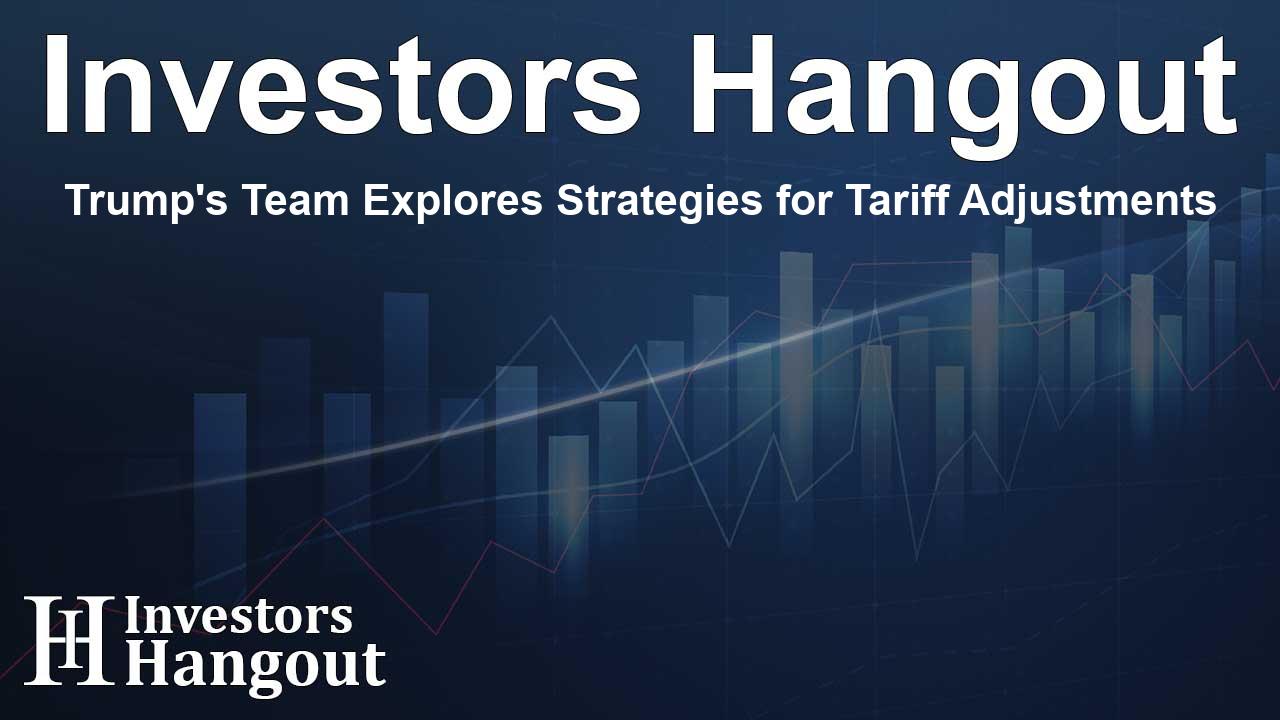Trump's Team Explores Strategies for Tariff Adjustments

Strategies for Gradual Tariff Increases
President-elect Donald Trump's economic team is currently deliberating a progressive approach to adjust tariffs. This plan, still in its early stages, is intended to boost negotiation power while mitigating the risk of sudden inflation spikes. The proposal, as reported by various sources, is being closely analyzed but has yet to reach Trump for final review.
Details of the Tariff Proposal
The envisioned strategy includes a series of incremental tariffs that would rise by roughly 2% to 5% each month. Such adjustments would fall under the executive powers granted by the International Emergency Economic Powers Act, reflecting a structured response to trade challenges that may arise.
Key Figures Involved
The economic team engaged in this initiative comprises notable figures like Scott Bessent, nominated to the role of Treasury Secretary; Kevin Hassett, in line to direct the National Economic Council; and Stephen Miran, who is being considered to lead the Council of Economic Advisers. The anonymity of the sources highlights the internal nature of these discussions.
Trump's Position on Tariffs
During his 2024 presidential campaign, Trump expressed intentions to implement minimum tariffs ranging from 10% to 20% on imported goods, with rates soaring to 60% or more for imports from China. Despite the discussions surrounding a gradual implementation, Trump has publicly refuted some reports suggesting a measured approach to tariff introduction.
Impact on the Market
On a related note, the S&P 500 Index recently saw fluctuations, dipping below its November levels before making a rebound. This volatility is linked to investor concerns surrounding inflation, exacerbated by potential tariff implementations. As investors have begun selling Treasuries, anxiety about ongoing inflationary pressures has emerged, complicating the economic landscape.
Economic Speculations Ahead
With the inauguration nearing, there remains considerable speculation regarding how Trump's proposed trade wars may reshape the economic environment. Kristalina Georgieva, Managing Director of the International Monetary Fund, has noted that uncertainty regarding tariff policies has begun to elevate long-term borrowing costs on a global scale. This prevailing ambiguity is adding to the mounting economic pressures worldwide.
Frequently Asked Questions
What is the main goal of Trump's tariff increase plan?
The primary aim is to enhance negotiation leverage while controlling inflation risks through gradual tariff adjustments.
How much would tariffs increase each month?
The proposed plan suggests an increase of approximately 2% to 5% in tariffs each month.
Who are the key members of Trump's economic team?
Notable figures include Scott Bessent, Kevin Hassett, and Stephen Miran, who play significant roles in shaping the tariff strategy.
What tariffs did Trump propose during his campaign?
Trump proposed setting minimum tariffs of 10% to 20% for imported goods and 60% or higher specifically on goods from China.
How are the new tariffs affecting the stock market?
There has been increased volatility, with the S&P 500 Index reflecting investor concerns about inflation due to the potential impact of new tariffs.
About The Author
Contact Evelyn Baker privately here. Or send an email with ATTN: Evelyn Baker as the subject to contact@investorshangout.com.
About Investors Hangout
Investors Hangout is a leading online stock forum for financial discussion and learning, offering a wide range of free tools and resources. It draws in traders of all levels, who exchange market knowledge, investigate trading tactics, and keep an eye on industry developments in real time. Featuring financial articles, stock message boards, quotes, charts, company profiles, and live news updates. Through cooperative learning and a wealth of informational resources, it helps users from novices creating their first portfolios to experts honing their techniques. Join Investors Hangout today: https://investorshangout.com/
The content of this article is based on factual, publicly available information and does not represent legal, financial, or investment advice. Investors Hangout does not offer financial advice, and the author is not a licensed financial advisor. Consult a qualified advisor before making any financial or investment decisions based on this article. This article should not be considered advice to purchase, sell, or hold any securities or other investments. If any of the material provided here is inaccurate, please contact us for corrections.
